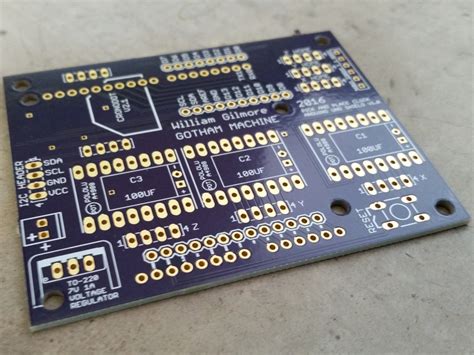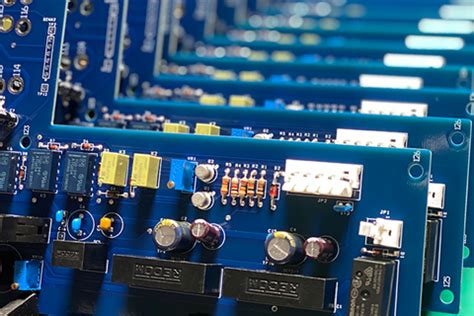Top Circuit Card Assembly Manufacturers to Know Today
Key Takeaways
The world of circuit card assembly is vital to the functioning of modern electronics, with pcb assembly serving as a fundamental aspect of this process. Leading manufacturers in this sector have established their reputations not only through their robust pcba capabilities but also through their commitment to innovation and quality. Companies are continuously enhancing their technologies to meet the diverse needs of various industries, from consumer electronics to aerospace and automotive. By offering tailored solutions that address sector-specific requirements, these manufacturers ensure that each assembly process meets rigorous standards for performance and reliability. Furthermore, the integration of advanced manufacturing techniques contributes to increased efficiency, enabling companies to deliver cutting-edge products while managing costs effectively. As the circuit card assembly industry evolves, it’s crucial for stakeholders to stay informed about the capabilities and technological advancements offered by these top-tier manufacturers.
Introduction to Circuit Card Assembly: Importance and Applications
Circuit card assembly, commonly referred to as pcb assembly or pcba, is a vital component in the production of electronic devices. This process involves the integration of electronic components onto a printed circuit board (PCB), enabling the functionality of various applications across multiple sectors, including telecommunications, automotive, healthcare, and consumer electronics. The effectiveness of circuit card assembly directly impacts product performance, reliability, and speed to market.
In today’s fast-paced environment, manufacturers are constantly seeking ways to optimize their pcba processes. This includes adopting advanced technologies such as surface mount technology (SMT) and through-hole technology to ensure precise component placement and soldering. Moreover, these innovations aid in reducing production costs and enhancing overall product quality.
As industries continue to evolve, the applications of circuit card assembly have expanded significantly. From wearable devices that monitor health metrics to complex aerospace systems requiring impeccable reliability, the nuances of each application necessitate tailored pcb assembly solutions. The importance of selecting the right manufacturer can thus not be overstated; one must consider their expertise in handling specific requirements such as miniaturization for compact devices or robustness for industrial machinery.
“The key to successful innovation lies in understanding the unique demands of each industry,” a leading expert once shared.
To summarize, circuit card assembly stands as a cornerstone in modern electronics manufacturing. As technology progresses and industries become more specialized, manufacturers that provide comprehensive pcba services—capable of adapting to various needs while ensuring efficiency—will be crucial in shaping the future landscape of technology solutions.
| Criteria | Importance |
|---|---|
| Precision | Ensures accurate component placement |
| Speed | Reduces time-to-market |
| Reliability | Guarantees long-term performance |
| Adaptability | Meets diverse industry needs |
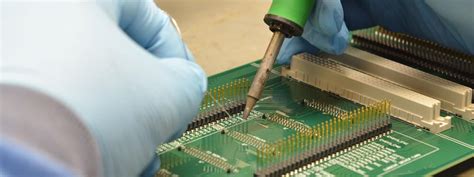
Criteria for Selecting Top Circuit Card Assembly Manufacturers
When evaluating the best circuit card assembly manufacturers, several key criteria should be considered. First and foremost, capabilities in handling various types of pcb assembly processes are crucial. This includes their proficiency in both surface mount technology (SMT) and through-hole technology, ensuring they can cater to a wide range of consumer needs. Moreover, assessing the manufacturer’s experience in pcba (Printed Circuit Board Assembly) is vital, as it reflects not only their technical skills but also their adaptability to changing technologies and market demands.
Another important factor is the commitment to quality control. Manufacturers should adhere to industry standards such as ISO and IPC certifications, which validate their processes for maintaining high-quality outputs. Additionally, innovative approaches to automation and technology integration can enhance not only efficiency but also accuracy in production.
Furthermore, consider the manufacturer’s ability to provide sector-specific solutions. Different industries, such as automotive, telecommunications, and healthcare require customized services tailored to their unique specifications. Manufacturers that demonstrate a deep understanding of these diverse sectors can offer added value through specialized support.
Lastly, look into customer testimonials and case studies that showcase successful partnerships. A manufacturer with a strong reputation backed by positive feedback will likely ensure that your pcb assembly needs are met effectively and efficiently. This holistic approach allows you to select a manufacturer who not only meets technical requirements but also fortifies your business objectives with quality partnerships.
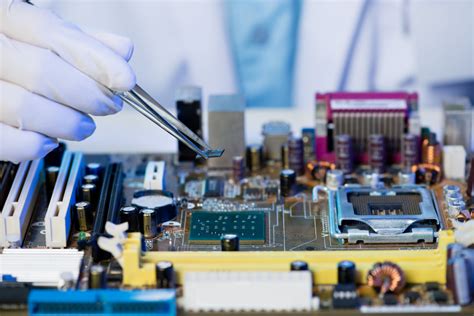
Leading Circuit Card Assembly Manufacturers: An Overview
The landscape of circuit card assembly is continually evolving, with several leading manufacturers at the forefront of innovation and excellence. Companies specializing in PCB assembly and PCBA are crucial in delivering high-quality electronic solutions across various sectors. These manufacturers are often recognized for their ability to provide tailored solutions, demonstrating both their capabilities and commitment to clients. For instance, some prominent players invest heavily in advanced manufacturing technologies, allowing for increased efficiency and reduced assembly times without compromising on quality. Moreover, the integration of automation and robotics into their processes has enhanced precision, ensuring that each circuit card assembly meets rigorous industry standards. In addition, many of these manufacturers actively engage in sustainable practices, addressing environmental concerns while maintaining operational efficiency. This commitment not only strengthens their market position but also showcases their ability to adapt to changing consumer demands and technological advancements. As a result, selecting a reputable manufacturer for PCB assembly or PCBA can significantly impact product performance and reliability in today’s competitive marketplace.
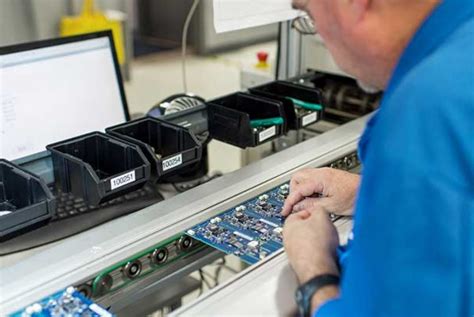
Innovations in Circuit Card Assembly Technology
The circuit card assembly (CCA) sector has undergone significant advancements, primarily driven by emerging technologies and evolving manufacturing processes. One notable innovation is the adoption of automated assembly techniques, which enhance the precision and speed of pcb assembly operations. These automated systems are capable of handling complex pcb designs with high accuracy, which reduces the likelihood of errors during assembly. Additionally, manufacturers have increasingly embraced surface mount technology (SMT), allowing for more compact pcba solutions that can accommodate a growing range of electronic functions on smaller circuit cards.
Moreover, advancements in materials science have led to the development of flexible substrates that improve the durability and performance of circuit card assemblies. The integration of smart technologies, such as IoT sensors within the assembly process, has enabled real-time monitoring and analytics, ensuring optimal performance and efficiency. These innovations are crucial as industries become more reliant on interconnected systems; thus, the ability to offer tailored solutions in various sectors is essential.
Together, these technological advancements mark a significant shift towards smarter and more efficient pcb assembly processes. The impact is seen not only in quality and reliability but also in sustainability efforts within manufacturing practices—a clear indication that the circuit card assembly industry is poised for continued growth and transformation.
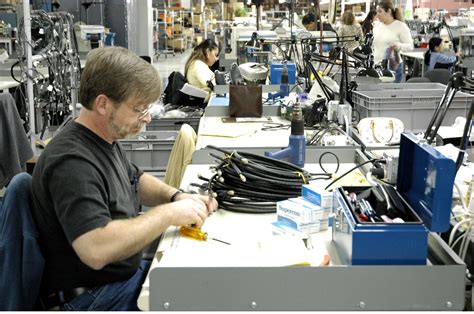
Sector-Specific Solutions Offered by Manufacturers
In today’s dynamic market, leading circuit card assembly manufacturers offer tailored solutions that cater to a variety of sectors, ensuring that each company’s unique needs are met with precision. For instance, the pcb assembly process in the automotive industry often requires specialized techniques to produce high-reliability assemblies that withstand challenging conditions, including extreme temperatures and vibrations. Manufacturers in this sector emphasize robust design and stringent testing protocols to ensure that their pcba meets regulatory standards. Similarly, in the telecommunications field, manufacturers focus on high-density pcb assembly, enabling compact designs without sacrificing performance. These firms utilize cutting-edge technology and innovative materials to enhance signal integrity and data transmission speed. The consumer electronics sector demands rapid production cycles paired with quality assurance to deliver high-volume assemblies while maintaining competitive pricing. Thus, many manufacturers have adopted agile production methods and advanced automation technologies. Additionally, in medical applications, precision and compliance become paramount; here, manufacturers emphasize biocompatibility and stringent regulatory adherence within their pcba processes to guarantee safety and effectiveness. By continuously honing their capabilities across various industries, these manufacturers not only drive innovation but also ensure quality and efficiency in every assembly process they undertake.
Ensuring Quality and Efficiency in Circuit Card Assembly Processes
In the rapidly evolving field of circuit card assembly (CCA), ensuring quality and efficiency is paramount for manufacturers who seek to maintain a competitive edge. Companies specializing in pcb assembly continually implement rigorous quality control measures to guarantee that each pcba meets industry standards. This involves integrating advanced testing protocols at various stages of production, allowing for timely detection of defects and optimization of manufacturing processes. Furthermore, these manufacturers are increasingly adopting automation and robotics to enhance precision and throughput, thereby increasing overall efficiency. With the use of sophisticated software systems, they can track production metrics in real-time, facilitating data-driven decisions that lead to continuous improvement. Additionally, collaboration with clients across multiple sectors allows these companies to tailor their processes, ensuring that solutions not only meet but exceed client expectations. By prioritizing quality and efficiency, circuit card assembly manufacturers solidify their role as essential players in a landscape driven by technological advancements and innovation.
Future Trends in the Circuit Card Assembly Industry
As the circuit card assembly industry continues to evolve, several key trends are emerging that are shaping its future. One significant advancement is the increased integration of automation and artificial intelligence in pcb assembly processes. This shift not only enhances productivity but also significantly reduces human error, resulting in improved quality and efficiency in every pcba produced. Additionally, manufacturers are focusing on sustainable practices, utilizing eco-friendly materials and processes to meet growing environmental standards. The demand for miniaturization is also driving innovation; as electronic devices become more compact, manufacturers are developing techniques that allow for higher component density on circuit boards without compromising performance. Furthermore, advancements in design software and simulation tools are enabling engineers to create more complex circuit designs faster than ever before. These trends highlight a dynamic landscape where adaptability and innovation are crucial for manufacturers aiming to stay competitive in the circuit card assembly sector. The future promises not only improved technology but also a more sustainable approach to manufacturing, ensuring that the industry can meet both consumer demands and environmental requirements simultaneously.
Conclusion
In summary, the world of circuit card assembly manufacturers continues to evolve with remarkable advancements and increasing specialization. The leading players in the pcb assembly niche have demonstrated their commitment to innovation by adopting cutting-edge technologies and processes that enhance their products’ quality and efficiency. From automated assembly techniques to implementing rigorous quality assurance protocols, these manufacturers are dedicated to meeting the diverse needs of various sectors, including automotive, aerospace, and consumer electronics. As these companies continue to refine their pcba capabilities, clients can expect tailored solutions that address specific project requirements effectively. The trajectory of growth and innovation within this industry showcases not only the expertise of these manufacturers but also their pivotal role in driving technological advancement in today’s market. Understanding their strengths is vital for any organization aiming to leverage high-quality circuit card assemblies for future projects.
FAQs
What is PCB assembly and why is it important?
PCB assembly, also known as PCBA, is the process of connecting electronic components to a printed circuit board (PCB). It is important because it enables the creation of functional electronic devices that meet various industry standards and consumer needs.
How are circuit card assembly manufacturers chosen?
When selecting circuit card assembly manufacturers, key factors include their track record, technological capabilities, ability to handle specific volumes, and commitment to quality assurance practices.
What innovations are driving the circuit card assembly industry?
Recent innovations like automated processes, advanced materials, and improved inspection technologies are enhancing efficiency and accuracy in pcb assembly, allowing manufacturers to adapt to rapid changes in demand.
Which sectors benefit from circuit card assembly?
Many sectors, including consumer electronics, automotive, healthcare, and telecommunications, rely on efficient PCBA services. Manufacturers tailor their solutions to fit the unique requirements of each sector.
How do manufacturers ensure quality in PCB assembly?
Quality assurance in pcb assembly involves stringent testing protocols such as Automated Optical Inspection (AOI) and In-Circuit Testing (ICT), alongside adherence to international standards like ISO certifications.


